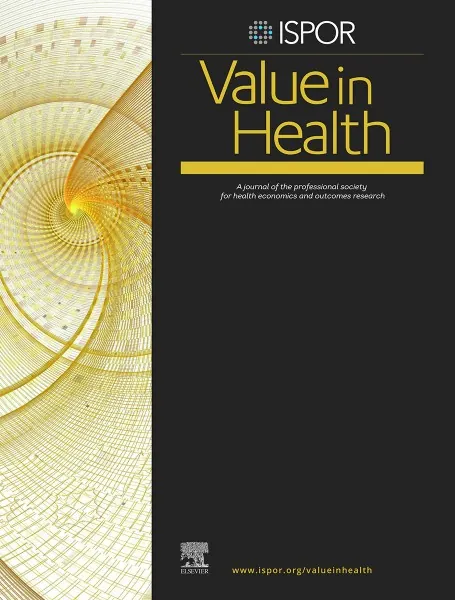
ISPOR Unveils Groundbreaking Guide for Expert Elicitation in Healthcare Decision Making
2024-11-06
Author: Mei
In a significant development for health economics, the Professional Society for Health Economics and Outcomes Research (ISPOR) announced the release of a new report titled "Recommendations on the Use of Structured Expert Elicitation Protocols for Healthcare Decision Making." This valuable resource is now available in the November 2024 issue of *Value in Health*.
The report outlines protocols for structured expert elicitation — a method crucial for healthcare decision making in contexts filled with uncertainty, including regulatory and reimbursement deliberations. According to Dr. Maarten IJzerman, a prominent figure in cancer health services research at Erasmus School of Health Policy & Management, this method effectively captures expert knowledge and translates it into probability distributions. This approach is especially helpful in scenarios where solid evidence is still developing, such as in advanced therapy products, precision medicine, and rare diseases.
ISPOR's report shines a light on five specific elicitation protocols, including: - **Sheffield ELicitation Framework (SHELF)** - **Modified Delphi Method** - **Cooke’s Classical Method** - **Investigate, Discuss, Estimate, Aggregate (IDEA) Protocol** - **Medical Research Council (MRC) Reference Protocol**
Each protocol is examined for its strengths and limitations across various dimensions, including economic, political, and social considerations. This guidance aims to assist decision makers in selecting the most appropriate protocol for different scenarios, whether they're working under time constraints, conducting early-stage technology assessments, or shaping public health policies.
Highlights from the report emphasize the necessity of transparency in reporting the processes and results of structured expert elicitation. Dr. IJzerman notes the importance of these protocols in creating reliable inputs for decision modeling, allowing stakeholders to navigate the complexities of healthcare decision making efficiently and effectively.
In light of this advancement, ISPOR’s Task Force on Structured Expert Elicitation aims to fill a critical gap in healthcare guidance, noting that comprehensive evidence for cost-effectiveness is often lacking. As they advocate for formalized methods to capture expert opinions, the task force underscores the potential impact this could have on making informed healthcare decisions amidst the uncertainties of modern medicine.
As governments and healthcare organizations around the globe grapple with rising costs and the complexities of technological advancement in healthcare, ISPOR’s guidelines are poised to help bridge the gap between expertise and decision-making, paving the way for more informed, reliable policies that ultimately benefit patient care.
For those interested in further exploring the evolving landscape of health economics and structured expert elicitation, ISPOR's report is an essential read, not only for healthcare professionals and policymakers but also for researchers and stakeholders aiming to be at the forefront of evidence-based decision making.




 Brasil (PT)
Brasil (PT)
 Canada (EN)
Canada (EN)
 Chile (ES)
Chile (ES)
 España (ES)
España (ES)
 France (FR)
France (FR)
 Hong Kong (EN)
Hong Kong (EN)
 Italia (IT)
Italia (IT)
 日本 (JA)
日本 (JA)
 Magyarország (HU)
Magyarország (HU)
 Norge (NO)
Norge (NO)
 Polska (PL)
Polska (PL)
 Schweiz (DE)
Schweiz (DE)
 Singapore (EN)
Singapore (EN)
 Sverige (SV)
Sverige (SV)
 Suomi (FI)
Suomi (FI)
 Türkiye (TR)
Türkiye (TR)